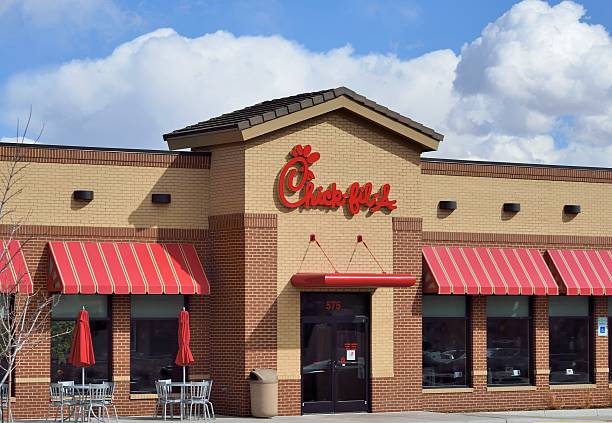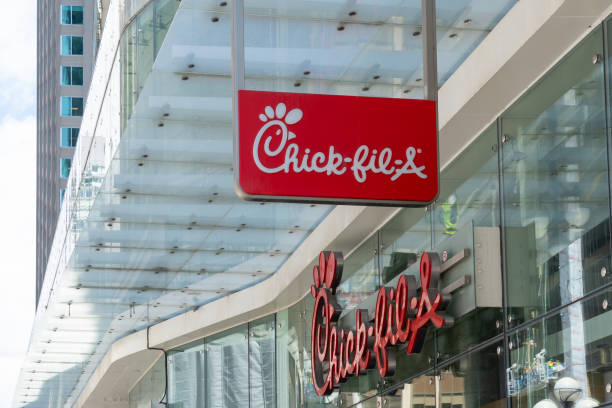In an industry where the sizzle of fast food franchises is often as tempting as the profits, Chick-fil-A stands out not only for its signature chicken sandwiches but also for its unique business model. This has inevitably led to a burning question on the minds of aspiring entrepreneurs and curious minds alike: “How Much Do Chick Fil A Owners Make?”
Embark on a journey through the financial landscape of one of America’s most beloved fast-food chains in our revealing article. With a deep dive into the earnings of Chick-fil-A owners, we pull back the curtain on what it truly means to operate under the banner of this fast-food giant. Our exploration is grounded in data, seasoned with insights from industry experts, and peppered with real-life testimonials from those at the helm of these bustling establishments.
The appeal of Chick-fil-A’s franchise system is undeniable, with its unique operating structure, robust corporate support, and unmatched brand loyalty. However, the intriguing question of profitability and the pathway to becoming a Chick-fil-A owner is shrouded in mystery. This article promises to unpack the layers of ownership, investment, and potential income that come with a Chick-fil-A franchise.
We don’t just stop at the average earnings; we delve into the factors influencing profitability, the costs of operation, and the comparison with other franchise opportunities. Our goal is to provide a comprehensive understanding that not only satisfies your curiosity but also serves as a guide for those contemplating the leap into franchise ownership.
So, whether you’re an entrepreneur at heart, a fast-food aficionado, or simply intrigued by the financial workings of high-profile franchises, our article, “How Much Do Chick-fil-A Owners Make,” is your gateway to uncovering the secrets of Chick-fil-A’s financial success. Prepare to be informed, engaged, and inspired as we tackle the question on everyone’s lips with precision, clarity, and a dash of intrigue.
Contents
Chick-fil-A Franchise Owner Earnings
Chick-fil-A franchise owners, known as Operators, can earn a substantial income from their restaurants. Here’s an overview of the earnings potential:
Hourly Earnings Estimates
According to ZipRecruiter salary estimates, Chick-fil-A Operators earn around $22 per hour on average. This factors together both hourly wages and annual earnings.
National Average Earnings
The national average annual earnings for a Chick-fil-A Operator range from $150,000 to $170,000 per restaurant. However, earnings can vary considerably depending on factors like location and sales volume.
Salary Range Based on Experience
More experienced Operators running higher-grossing stores can earn over $200,000 annually. Newer Operators may make closer to $100,000 when starting out.
Chick-fil-A Operator Salary
The average Chick-fil-A Operator salary is $200,000 per year. However, some Operators make well over $300,000 annually when factoring in bonuses and profit sharing.
Profit Sharing
Chick-fil-A offers Operators a profit-sharing bonus that averages 15% to 20% of net sales. For a restaurant generating $2.5 million in sales, that could mean an extra $375,000 to $500,000 in profit sharing.
Becoming a Chick-fil-A Franchise Owner
Becoming a Chick-fil-A franchisee is highly competitive but rewarding for those accepted. Here’s an overview of the process:
Difficulty of Getting Approved
Chick-fil-A has a rigorous vetting process and only accepts around 75 to 100 new Operators a year from tens of thousands of applicants. The acceptance rate is estimated to be less than 0.5%.
Application Process
To get started, you submit an initial application. If accepted, there are multiple interview stages, including an assessment day at headquarters. Applicants must also show proof of financial qualifications.
If selected, Operators go through an extensive 7-week training program before opening their restaurant.
Emphasis on Community Involvement
Chick-fil-A looks for franchisees who want to get involved in their local community. Giving back is a core part of the company’s values.
Investment Costs

While the franchise fee is low, starting a new Chick-fil-A requires significant capital investment. Costs include:
- Franchise Fee – $10,000
- Real Estate – $350,000 to $2,000,000+
- Equipment – $250,000 to $500,000
- Inventory – $15,000 to $25,000
- Total Investment – Around $700,000 to $2.5 million
Chick-fil-A offers some financing assistance programs to help Operators with these startup costs.
Advantages of a Chick-fil-A Franchise
Here are some of the key benefits of owning a Chick-fil-A franchise:
- High earnings potential – Operators have the opportunity to earn $200,000+ annually.
- Low franchise fee – At $10k, it’s much lower than most franchises.
- Strong brand – Customers love the food and service.
- Support – Chick-fil-A provides site selection, marketing, and operations support.
- Work-life balance – Closed on Sundays and holidays.
Daily Operations and Responsibilities
As the franchise owner, your key responsibilities include:
- Staff management – Hiring, training, and managing your restaurant team.
- Marketing – Promoting your location in the community. Chick-fil-A provides marketing resources.
- Quality control – Ensuring food quality, cleanliness, and service meet brand standards.
- Operations – Managing inventory, orders, policies, profit/loss, analytics, etc.
Owning a franchise is a hands-on role requiring strong business acumen and leadership abilities.
Growth Potential
The most successful Chick-fil-A Operators have opportunities to grow by opening multiple restaurant locations. Top-performing Operators can be eligible to open additional franchises sooner than the typical 5-year wait.
Challenges of Franchise Ownership

Though rewarding, owning a Chick-fil-A franchise also comes with challenges, such as:
- Long hours – Operators often work 60+ hours per week, especially when starting out.
- Competitive market – The fast food industry is saturated with competitors.
- Ongoing training – Operators must regularly train employees on providing excellent service.
Length of Franchise Agreement
The Chick-fil-A franchise agreement term is for 20 years. For the first 5 years, Operators focus on one location before being able to open more restaurants.
Alternative Franchise Options
For those interested in tech-focused franchises with lower startup costs, here are two alternatives to consider:
Techy Cafe Franchise
Techy Cafe offers tech services like computer repair, web design, and digital marketing services in a coffee shop setting.
- Startup cost: $75,000 – $200,000
- Target customers: Digital natives and small businesses needing tech services
BrightStar Care Franchise
BrightStar Care provides in-home care and medical staffing services.
- Startup cost: $100,000 – $165,000
- Target customers: Seniors, people with disabilities, hospitals/facilities
Conclusion
Owning a Chick-fil-A franchise provides the opportunity for substantial earnings backed by a strong brand. However, the highly competitive application process, hefty startup costs, and demanding workload make it a challenging endeavor. For community-minded entrepreneurs who enjoy working with people and have solid business experience, a Chick-fil-A franchise can be a rewarding investment with immense growth potential.

Trayce served as a grassroots leader and activist in Texas as President of Dallas and Texas Eagle Forum.
Trayce is Mom Caucus Member, Texas Conservative Mamas, Texas Conservative Grassroots Coalition Leader, and Grassroots America Champion of Freedom Honoree.
She currently serves as the Eagle Forum National Issues Chair on Human Trafficking.
Trayce received a Bachelor’s Degree in Marketing from Texas A&M
Currently, she homeschools her youngest child age 13 and graduated her six oldest children, ages 31 to 19.







